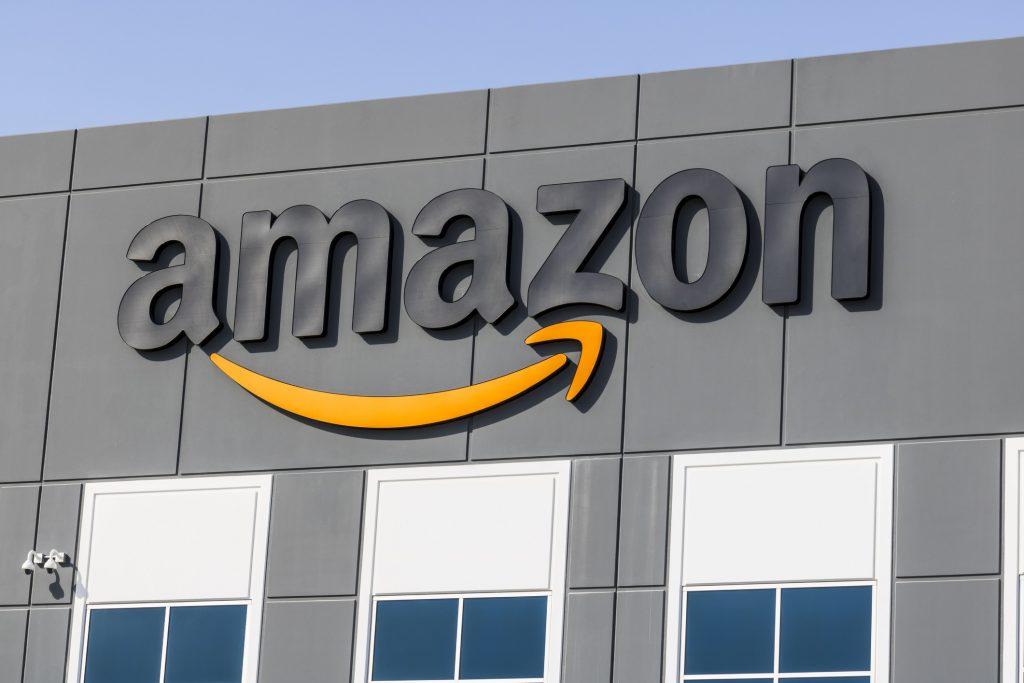The Amazon effect is the name given to the phenomena that the retail giant Amazon has disrupted the retail market, both online and in physical stores. The title refers to Amazon’s continued dominance of the online market; its rise in e-commerce sales that has resulted in a number of small businesses having to close up shop due to being unable to compete.

One primary manifestation of the Amazon effect is the consumer shift towards online shopping. Physical stores are closing every day across the UK as they fail to keep up with the shifting preferences of consumers having their goods delivered right to their door. But even other online retailers are finding the Amazon giant to be some serious competition.
Amazon offers a delivery service that most other businesses cannot compete with. Their one-day delivery service, Amazon Prime, has made them an unstoppable force that consumers are now turning to for everyday items like cleaning products, lightbulbs and even food and drink. In fact, Amazon is also operating a same-day delivery service in parts of the US, adding even more convenience and competitive service for its customers.
With Amazon selling virtually anything you can think of and making billions in profits each year, how can smaller businesses hope to compete against this online giant and stay competitive?
The Amazon Effect on Small Businesses
Amazon started as a small online bookseller in 1994 and became one of the most profitable companies in the world. But this giant can work both for and against small business owners.
Studies show that most small business owners view Amazon as a threat to their business, with it being viewed as harmful for their growth. However, there is a way to try and make Amazon work for you by working with them.
Small businesses can sell their products through their own Amazon facilitated store; close to half of all Amazon sales come from small business sales. This can help to increase a small business’s profits and see their company receive a boost in their online presence and social media engagement.
While Amazon could help small businesses, many feel that they are up against an undefeatable rival with their one-click ordering and one-day shipping. Many companies have already closed their doors as a result of Amazon’s growing market dominance. Amazon has also become a gatekeeper when it comes to e-commerce, with more than half of online shoppers starting their search journey on Amazon’s website.
Some smaller businesses feel that they have no choice but to partner with Amazon to get onto the market. Some companies have also stated that the commission they must pay Amazon to use their service means that they have been unable to invest in new products and grow their sales.
So what are the alternatives to working with Amazon and trying to compete with the giant?

How Can Small Businesses Compete with Amazon?
Amazon might feel like a behemoth that cannot be trifled with, but small businesses do have unique advantages over the retail giant. For example, they can provide a personable, unmatched customer experience that cannot be achieved at such a large scale. To compete against the convenience of Amazon, smaller businesses should instead be focusing on providing a reliable service that consumers cannot get elsewhere that will keep them coming back as regular customers time and time again. Here are some things you can do to make sure your business stays competitive:
- Make customer service your priority
The way you treat your customers needs to be the most crucial thing in your business. Positive e-commerce experiences will create a buzz about your brand and bring customers back again, as well as encourage them to spread the word about their experience with your business. The ultimate care and service is what will bring people running to your business. Free samples in packages, vouchers for their next delivery and a personalised thank you note are all great little touches that will elevate your customer service to the next level.
- Prepare for the unexpected
An unexpected downturn in sales or expenses can make or break an unprepared small business. Make sure you have some kind of safety net to catch you during these difficult times, whether it’s with disciplined savings or a business credit card, have some kind of reserve in place to carry you through slumps so you don’t end up in debt that you can’t get out of.
- Grow your brand
Use social media and review sites to grow your brand and get your name out there. With online scams everywhere, most consumers will look for reviews before purchasing through an unknown company. So use this to your advantage and ensure you’re getting the best possible reviews to encourage others to buy – follow-up emails from purchases can be a great tool to get more reviews from previous customers.
- Put emphasis on “shop local”
Consumers are caring more and more about where their products come from and how to reduce their carbon footprint. Jump on this trend and emphasise the locality of your business. Get out in your community, sponsor local events and let people know all about your local products and how their purchases will be boosting the local economy.
- Personalisation and customisation
You need to understand your customers and let them know that you care. Stock emails won’t get people’s attention, so make sure they are directed to people by name and offer them exclusive offers and products based on their purchasing habits. Sending offers that resonate directly with your customers will help to push your brand as one that genuinely cares and understands its customer base.
- Optimise your supply chain
Finally, make sure you optimise your supply chain so it is running as effectively and efficiently as possible so you can get those orders out on time and not leave anyone disappointed. This can be done in a number of ways, including completely overhauling outdated processes such as the use of paper spreadsheets.Barcode labels and asset tracking software can be a great asset to your warehouse, allowing you to keep track of your stock in real-time and provide you with comprehensive data about the inner workings of your supply chain, so you can make informed, data-driven decisions. At GSM Barcoding, we can provide you with a complete stock control software system to help take your small business to the next level. Contact us today for more information.


















